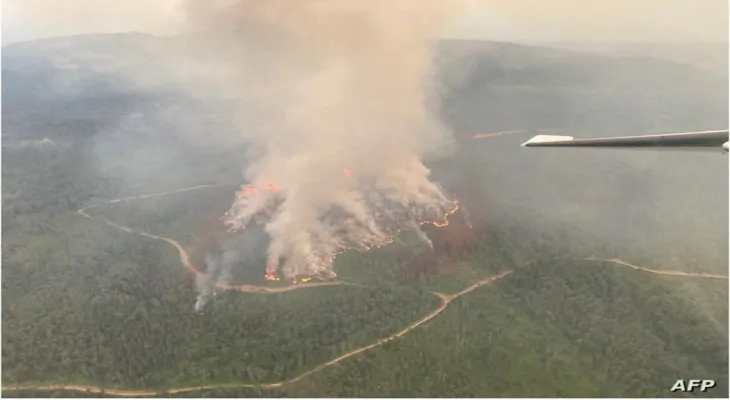Search here
Newspaper
Search here

Arab Canada News
News

Published: August 12, 2023
This year's historic wildfires in Canada have emitted more than a billion tons of carbon dioxide, an unprecedented level, according to estimates from Canadian authorities on Friday.
This is roughly equivalent to the annual emissions of Japan (about 1.12 billion tons of carbon dioxide in 2021), the fifth-largest polluter in the world, and exceeds the annual emissions of the global aviation sector in 2022 (around 0.8 billion tons of carbon dioxide).
Michael Norton, the general director of the Canadian Forest Service, said on Friday, "This summer has turned into a real marathon," as the West prepares for a new heat wave.
He added, "Our preliminary estimates indicate that current season emissions have exceeded a billion tons of carbon dioxide equivalent." He predicted that the risks of wildfires would remain "higher than normal" until September.
According to data published by the European Copernicus Observatory, carbon emissions from the fires in Canada have reached unprecedented levels and more than doubled the previous annual record set in 2014 by the end of July.
This season, massive fires have spread across the country with tremendous intensity, breaking records in many provinces. Canada has been in a state of maximum alert for wildfires for 90 days, a record period.
Natural Resources Minister Jonathan Wilkinson said during a press conference in Vancouver, "This year's wildfire season has been informative; it has shown us what awaits if we do nothing to reduce emissions," noting that climate warming is the "main cause."
So far, the fires have consumed 13.5 million hectares, double the record burned area of 7.3 million hectares in 1989, according to the Canadian Wildland Fire Information System.
Comments